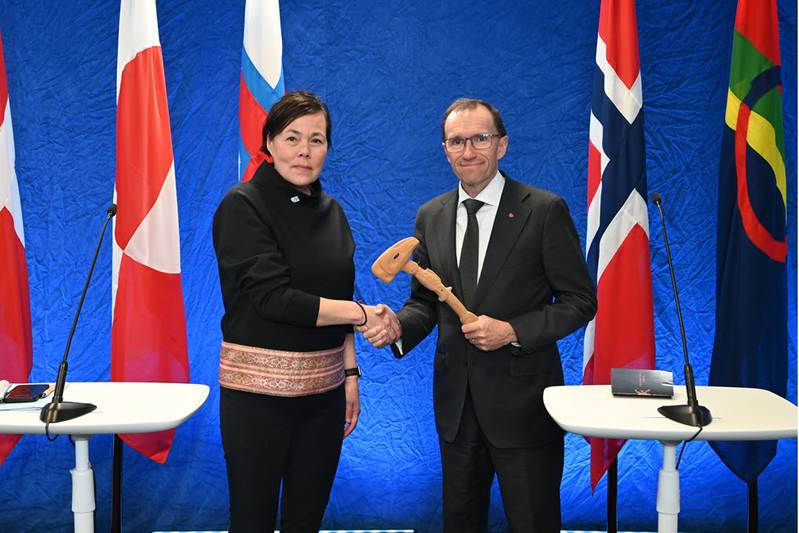On May 12, at the 14th meeting of the Arctic Council, representatives from the eight Arctic States and six Permanent Participant organizations met virtually to conclude Norway’s two-year chairship and mark the beginning of Denmark’s chairship.
During the meeting, the Arctic States and Permanent Participants issued a joint statement (the Romssa-Tromsø Statement) reaffirming their commitment to maintaining peace, stability and cooperation in the Arctic, and acknowledged the role of the Arctic Council as the pre-eminent forum for circumpolar cooperation for nearly three decades.
The statement emphasizes the critical importance of circumpolar dialogue between all Arctic States and Permanent Participants, as well as the Arctic Council’s role in addressing human, social and environmental issues with the prosperity and wellbeing of Arctic inhabitants at the center. It further recognizes the individual and collective rights of Arctic Indigenous Peoples, their vital role in the Arctic Council and their special relation to the Arctic.
“In a challenging time for Arctic cooperation, I am pleased that the Arctic Council remains united. In today’s geopolitical situation, it is particularly important to maintain a forum for all Arctic States and the Indigenous Peoples in the region,” said Espen Barth Eide Minister of Foreign Affairs for Norway and Chair of the Arctic Council.
“During the Norwegian chairship, Norway has emphasized the consequences of climate change in the Arctic, the importance of cooperation with Indigenous Peoples in decisions affecting their livelihoods and future, and the need for international collaboration to address environmental challenges related to increased human activity.”
When Norway assumed the chairship of the Arctic Council in May 2023, official Arctic Council meetings had been paused. The Norwegian chairship prioritized resuming the scientific work of the Council, first by achieving consensus to resume the work of the Council’s Working Groups by written procedure in August 2023, followed by the gradual resumption of virtual Working Group meetings beginning in February 2024. The Norwegian chairship regularly engaged both bilaterally and multilaterally with all Arctic States, Permanent Participants, Working Groups and Observers.
During its chairship, Norway focused on four main priorities: The Oceans, Climate and Environment, Sustainable Economic Development and People in the North. Youth and Indigenous Peoples were emphasized as cross-cutting priorities.
The incoming chairship of Denmark will highlight five overarching priorities: Indigenous Peoples and Communities in the Arctic, Sustainable Economic Development and Energy Transition Solutions, Oceans, Arctic Climate Change and Biodiversity. Denmark will continue supporting ongoing activities of the Council’s Working Groups, as well as a number of new projects.
“As chair over the next two years, we will work hard to maintain the Council as vibrant and resilient. First and foremost, for the benefit of the Peoples of the Arctic, so that the Arctic remains a region of stability and constructive cooperation,” said Vivian Motzfeldt, Minister of Foreign Affairs and Research for Greenland and incoming Chair of the Arctic Council.
“We have an overall ambition of being an inclusive Chairship and to bring the work of the Arctic Council close to its citizens. We are very much looking forward to doing so in close cooperation with the other Arctic States, the Permanent Participants and all other relevant stakeholders.”
